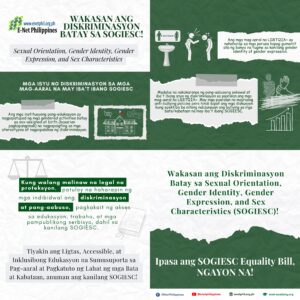
Blog
RESOURCES
Recommendations on Consideration of House Bill No. 6707, entitled “An Act Providing for a Recovery Assistance Package for Higher Education and Technical-Vocational Education and Training, Appropriating Funds Therefor, and for other purposes
 Loading...
Loading...
Submission to the New Normal Subcommittee of the Defeat COVID-19 Ad Hoc Committee of the House of Representatives 17 June 2020
The Philippines is in a State of Calamity and Luzon, its biggest island where Metro Manila is located, has been placed under “Enhanced Community Quarantine” (lockdown) due to COVID19 outbreak since March 16, 2020. Other cities and provinces outside Luzon have also imposed ECQ as this virus is spreading in their localities. While NCR and other places are now on General Community Quarantine (GCQ) the pandemic virus is still around invisibly and safety measures and preventive actions in all our planning and interventions have to take into most consideration. About 27 million learners in public and private basic education, an estimate of close to 5 Million learners in public and private higher institutions (Data compiled, OPRKMKnowledge Management Division, 2019) and around 183,563 learners from Technical Vocational Education (1st Quarter 2020, TVET Statistics) are affected by this COVID 19 pandemic. Data on the affected learners with disabilities, out-of-school learners missing education, indigenous people, and disadvantaged women should also be given priorities in the Learning Management System of the Commission on Higher Education.
Access to quality and equitable participation of learners in higher education and even in the Vocational Technical education becomes a formidable issue now affecting their learning continuity. The outcome of the pandemic corona outbreak resulted to loss of jobs of parents, no work, no pay due to the lockdown of companies and economic dislocation among families. Teachers in private schools lost their jobs due to migration of students to public schools and closure of schools. A big impact for higher education is also evident. Closure of training institutions for teachers would mean high risk of shortage of qualified teachers. International students have loss their jobs and likewise resorting to dropping-out.
The efficiency of transitioning from the traditional classroom face to face learning to remote learning whether asynchronous or synchronous mode requires preparation and readiness of the learners, teachers and school leaders in these learning modalities and landscape. The government should ensure the provision of professional development learning and support to all teachers without the skills to provide distance education and/or virtual learning, digital tools, and other alternative delivery modes to support the learning continuity of their learners.
There’s no more going back in the past and our education system should adapt to the new normal fast and effective. In adapting to the new normal, the 1987 Philippine Constitution specifically Article XIV, Section 1 that states “The State shall protect and promote the right of all citizens to quality education at all levels, and shall take appropriate steps to make such education accessible to all” and the government commitment to SDG particularly SDG 4 that “ensures inclusive and equitable quality education and promote lifelong learning opportunities for all” must serve as the guidepost in all its education efforts and targets.
The right to education of our learners must continue and should not to be compromised.


